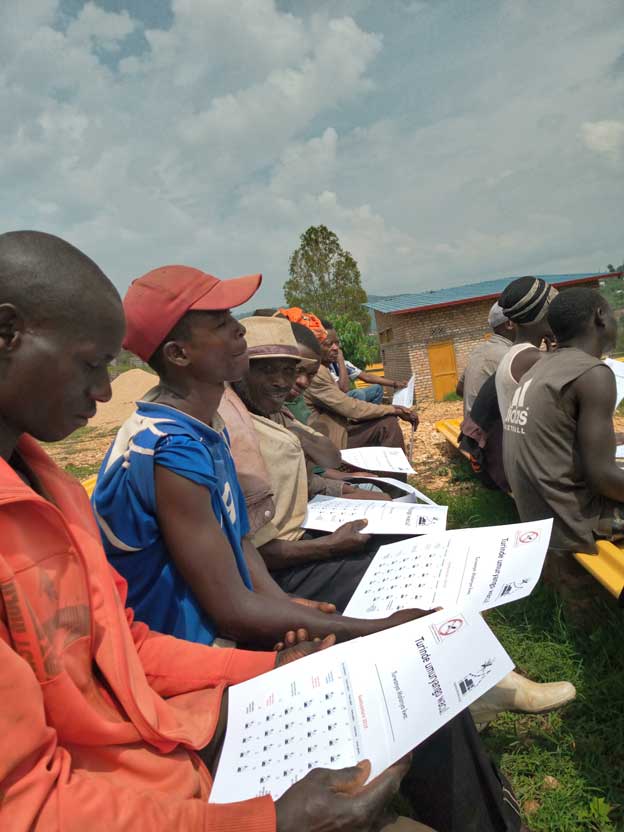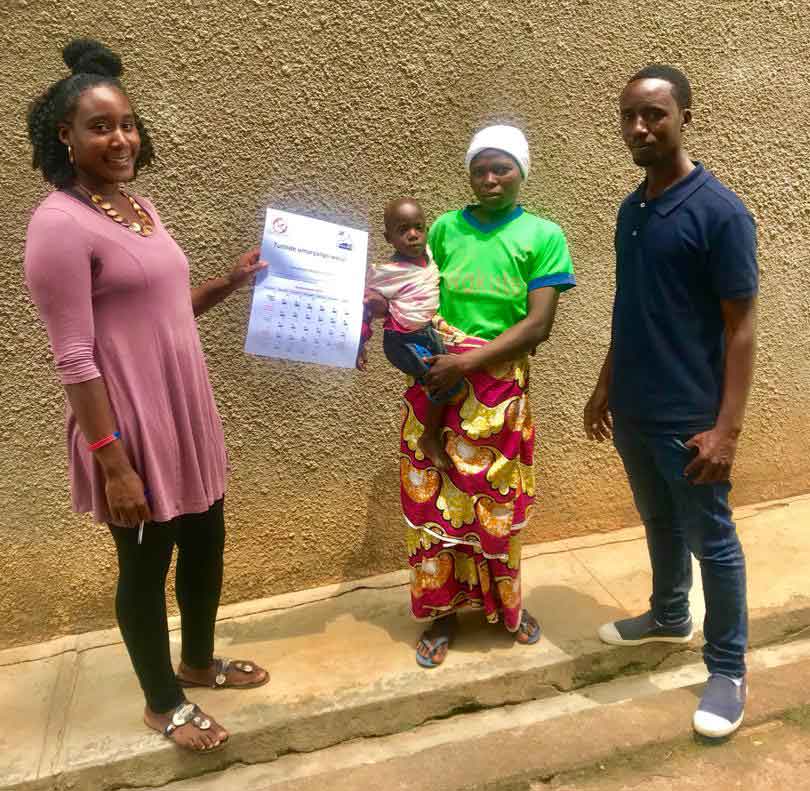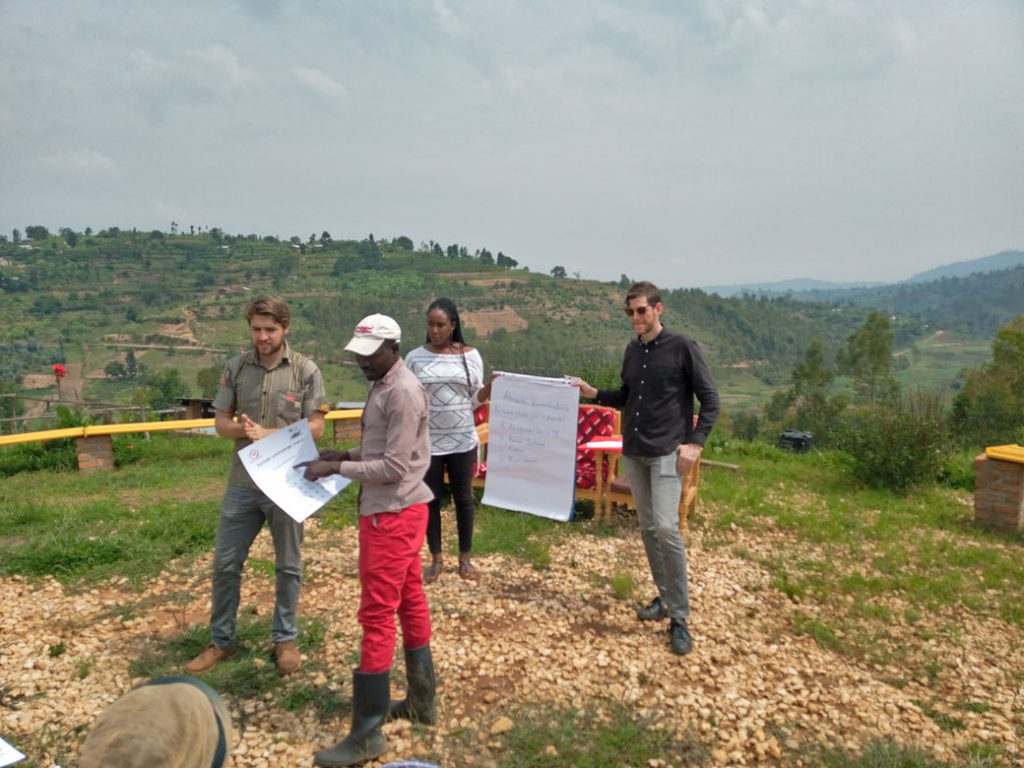The malaria prevention and coffee meeting had been over for 20 minutes, but five mothers continued to relax on benches poring over a freshly printed calendar on cardstock with a special interactive message. Printed in the local dialect of Kinyarwanda, the bold text on the calendar reads: “We protect our families!” and “We use our nets every night.”
This calendar was designed to be decorative while also encouraging and motivating families to take malaria prevention seriously—on a daily basis. It prompts families to check their nets for holes and repair it weekly, while checking off every day that they use their net.
The calendar was developed by Peace Corps Volunteers Ryan Sandford and Andrew Abram, who are working under the U.S. President’s Malaria Initiative in Rwanda through USAID’s Ingobyi project. They are also the national coordinators for the Peace Corps’ Stomping Out Malaria in Rwanda Initiative.
“Sometimes print resources get sidestepped in these sorts of projects, but this one has a lot of potential to really hit home the message we are trying to convey,” Ryan said.
“Malaria prevention day camps and other activities are great, but we need to be accompanying community members in weekly/monthly discussions. The calendar is like an action plan and a visible behavior change reminder for these farmers,” he said. “Malaria prevention is a journey. We want to walk with them each step of the way.”
The volunteers have been meeting with a group of coffee farmers for over a year now, tacking malaria prevention activities onto the end of the farmers’ coffee meetings.
“There is definitely a high level of trust between us, our counterparts, and the farmers,” Ryan said. “Using Kinyarwanda, and showing up to hear their own opinions and empower them has sent a clear message: We are here to invest in them and champion them in searching for ways to reduce malaria burden in this area.”
This integrated management approach of adding onto already existing business meeting activities helped the team express a simple message: preventing malaria is an investment and contracting malaria is not only dangerous, but it reduces productivity and income of those who fall victim to it.
The coffee farmer community group has existed for quite some time. Most of the interventions have been community meetings, discussions and action planning focusing on: 1) accepting that malaria is an issue and 2) critically think about how they can protect themselves and their community collectively.
Leaders in the group like Edison, a farmer in a nearby village, are hoping the program continues to scale up.
“We need repetitive activities—when my family heard the reminder to repair our nets, we went home and did it. We need the reminders in this community,” explained Edison.
The latest activity with the farmers has been implemented on a small scale, but the model has been used as well in a nearby health center by another Peace Corps volunteer, Niesha Ford, who works as a regional malaria coordinator for Stomping Out Malaria in Rwanda.
Niesha rolled out the calendar for February with 40 mothers in her community group at the health center where she works. This weekly program focuses on follow up as well as formative action plans, as mothers gather in small groups to discuss malaria and better prevention strategies in their own homes.
“We ended our first meeting by discussing how over the next month we would incorporate malaria messages in our Wednesday milk distribution sessions,” Niesha said. “And we would be checking in on them weekly to check their progress.”
But this information about malaria prevention comes as no surprise to this community that has been assisted by community health workers, health center staff and other partners involved in behavior change communication/malaria prevention work. Part of the problem lies in communicating the value of using a net every night, and helping this information stick for these families who have heard the same malaria prevention message a thousand times.
To tackle this dilemma, in both the coffee farmer community group and Niesha’s community group, each meeting finishes with a Kinyarwanda proverb to drive the message home. Proverbs are often a helpful tool in behavior change and are one that STOMP members are becoming increasingly interested in exploring.
For instance, one of the meetings closed with the proverb “Amagara ntaguranywa Amagana,” which means “health before wealth”. The attendees were asked that they show their neighbors their new calendars and spread the same message.



